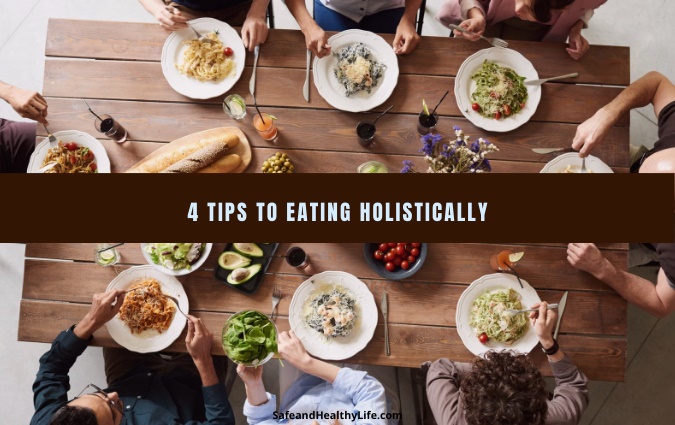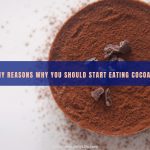
If you want to take care of your health by eating well, it can be difficult to know where to begin. With an array of new diets ranging from paleo to raw, vegan to DASH, the options can seem overwhelming.
Taking a holistic approach to your diet allows you to eat well as part of a lifestyle that takes into account your emotional and mental well-being as well as your physical health.
Holistic nutrition involves eating food that is as close to its natural state as possible in an unprocessed, unrefined, and organically produced way.
This article outlines some helpful tips for healthy eating from a holistic viewpoint.
1. Cut Out Fast Food
Most fast food outlets are known for adding hormone-rich chemicals to their products, as well as using toxic ingredients as part of their food production, such as pesticides, nitrates, and preservatives.
Chemicals are also added to the food to enhance the flavor of their food products, including monosodium glutamate, trans fats, sugar, and high-fructose corn syrup.
Many of these substances can be addictive and can alter your brain chemistry, so cutting them out of your diet is a huge step towards a healthy diet and lifestyle.
Instead of opting for a fast food option, make use of your kitchen appliances and create some homemade goodness using fresh ingredients.
2. Drink More Water
The human body is made up of over 70% water, so staying hydrated is vital for your health. Dehydration can impede your body’s ability to flush out toxins, function optimally as well as lead to chronic fatigue, aging, and headaches.
Some of the benefits of being hydrated throughout the day include:
- Regulation of body temperature
- Improved cognition, mood, and memory
- Lubrication of joints
- Aiding digestion
- Carrying nutrients to cells
Drinks high in sugar such as fruit juices or sodas or caffeinated beverages can lead to dehydration, so it is recommended to replace them with water as much as possible.
To make it more appealing to the tastebuds consider adding some freshly squeezed lemon or fruit to your water or drinking herbal teas instead of black tea.
3. Reduce Your Salt Intake
According to a study by the Centers for Disease Control and Prevention (CDC), 90% of Americans consume too much sodium and about 70% of this comes from processed foods and restaurant food.
One of the main causes of high blood pressure, reducing your salt consumption can also reduce your risk of heart disease and stroke.
4. Reduce Your Sugar Consumption
As well as causing obesity, a diet rich in sugar can cause serious health problems over time. Excess insulin production can cause damage and inflammation to the blood vessels due to hyperglycemia and if left untreated can lead to other conditions such as diabetes, stroke, kidney and heart problems.
Consider replacing sugar with healthier substitutes such as stevia, xylitol, or honey.
By incorporating the four tips in this article into your food shopping and your daily life, you will soon see benefits to your health and overall well-being.
About The Author:
Pat Lee was born in January 1992. Today, she is a digital marketer who has several years of experience in working with non-profit organizations. She has extensive knowledge in the fields of Education, Computer Science, and Psychology. When she isn’t helping build brands, she practices Muay Thai and runs marathons.




